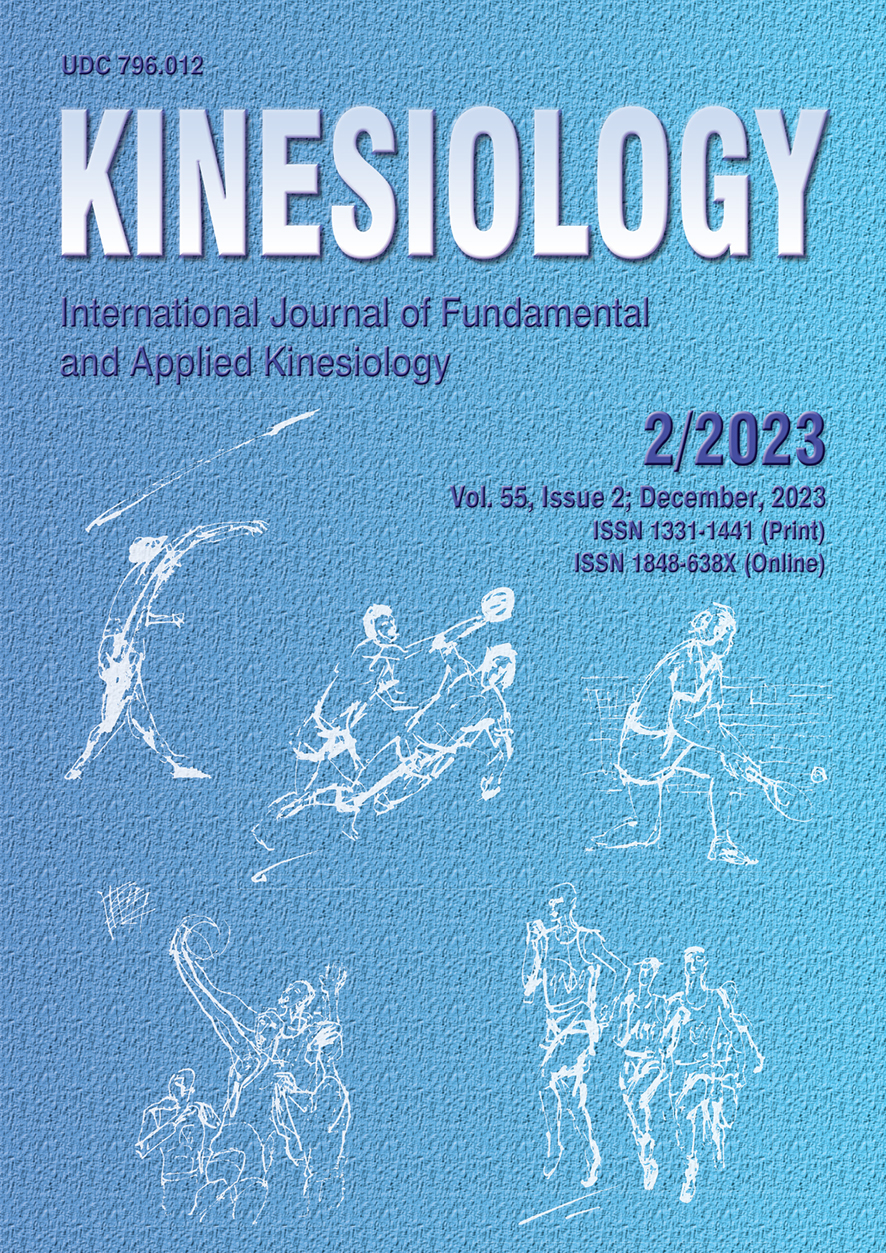HOW COMPETITIVE PERFORMANCE DATA CAN INFORM THE TRAINING PROCESS? AN ACTION-RESEARCH STUDY BASED ON THE CONSTRAINT-LED APPROACH
Abstract
By implementing an insider action-research (AR) design throughout a competitive volleyball season, this study sought to examine qualitatively how competitive data, extracted from match analysis, may support the development of a coaching intervention based on the principles of the constraint-led approach. Twelve elite players, one head coach and one assistant coach participated in two AR cycles, each one involving the processes of planning, monitoring, reflecting, and fact-finding. The first author, who was also the assistant coach and the insider-researcher, collected data over 20 weeks using interviews, training videotaped records, and field notes. Data were analysed using thematic analysis, and inductive procedures were adopted to deepen an understanding of how a constraint-led coaching intervention evolved over the season. The results highlighted competitive data as a relevant tool for supporting the underlying pedagogical process in the design of representative learning tasks via constraints manipulation. Grounded on competitive data, the learning designs progressed from an initial point where constraints manipulation was scarce, non-representative, and without stimulating players’ problem-solving abilities, to an endpoint where tasks were conceived based on the next opposition’s features (i.e., task representativeness) and focused on the development of functional and co-adaptative skills. In conclusion, the competitive data supported the development of a coaching practice based on the constraint-led approach. Methodologically, the insider AR-design offered contextualized insights into how the pedagogical coaching intervention evolved over the season. Thus, we highlight the importance of sampling the most relevant information from competition, through match analysis reports, so that coaches can design representative and contextualized learning tasks ongoingly aligned with players’ needs.
Key words: ecological dynamics, sports pedagogy, qualitative analysis, volleyball
Downloads
Published
How to Cite
Issue
Section
License

This work is licensed under a Creative Commons Attribution-NonCommercial 4.0 International License.
At Faculty of Kinesiology we recognize that access to quality research is vital to the scientific community and beyond. Kinesiology is non-profit journal and all costs of publishing and peer review process are covered by the publisher itself or other funding sources like Ministry of Science and Education of the Republic of Croatia. Full text papers are also available free of charge at http://hrcak.srce.hr/kineziologija. There are no restrictions on self archiving of any form of paper (preprint, postprint and publisher's version).
Articles are distributed under the terms of the CC BY - NC 4.0
Kinesiology does not charge any fees to authors to submit or publish articles in our journal.


